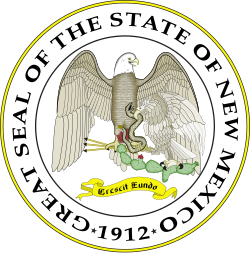This article is actively undergoing a major edit for a little while. To help avoid edit conflicts, do not edit it while this notice is displayed. This page was last edited 3 seconds ago, at 19:17, 3 November 2025 (UTC) (). Please remove this template if this page hasn't been edited for a significant time. If you added this notice, remember to remove it or replace it with {{ under construction }} between editing sessions. |
This article relies largely or entirely on a single source .(November 2025) |
| Elections in New Mexico |
|---|
 |
Senator John Kerry, the frontrunner for the nomination, won the 2004 New Mexico Caucus on Mini-Tuesday, February 3, 2004, by a landslide. 2+1⁄2 weeks ago before the election, third place finisher Howard Dean was leading former army general Wesley Clark 16% to 18%. Kerry got the endorsement of Lieutenant Governor of New Mexico Diane D. Denish. Wesley Clark got the most endorsements out of anyone. He got Mayor of Santa Fe Larry Delgado, candidate for offices Roberto A. Mondragon, congressional candidate Richard Romero and the Albuquerque Tribune. Governor Howard Dean got an endorsement from former Oklahoma senator Fred Harris and former governor Toney Anaya. Joe Lieberman yet again faced another disappointing showing in the primaries. [1]